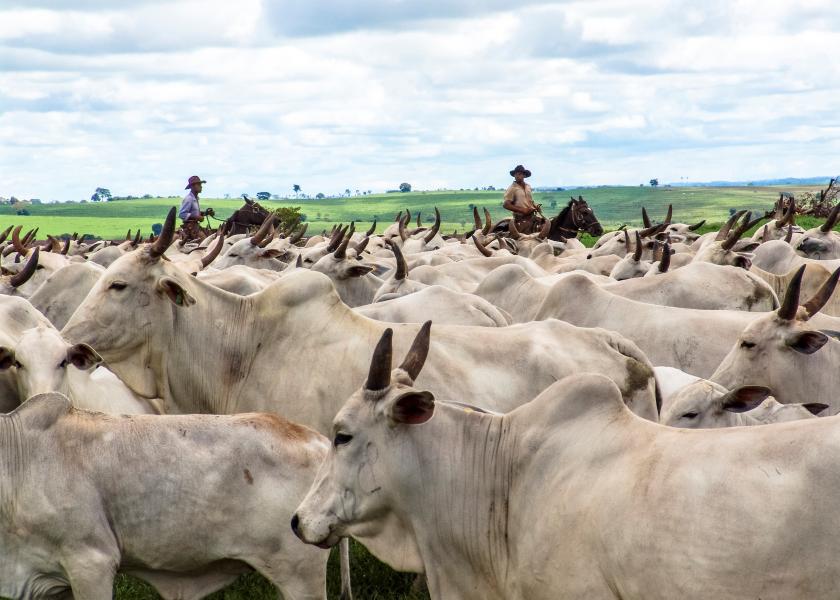Brazil Rejects BSE Risk, But NCBA Asks Vilsack To Stop Imports To U.S.

Brazilian authorities said Thursday that two reported cases of a neurodegenerative disorder in Rio de Janeiro were not related to beef consumption.
Federal biomedical institute Fiocruz, which is investigating the possibility of Bovine Spongiform Encephalitis (BSE) said the two patients are suspected of having the "sporadic" form of Creutzfeldt-Jakob disease not related to beef consumption, Reuters reports.
Brazil officials had confirmed two cases of “atypical” BSE in cows on Sept. 4, triggering a suspension of beef exports to China under a standing bilateral agreement. The Agriculture Ministry stressed that the two cases, found in the states of states of Mato Grosso and Minas Gerais, had generated spontaneously and were not related to contaminated feed, as in classic mad cow disease.
National Cattlemen's Beef Association (NCBA) called on Secretary Vilsack to immediately suspend all imports of fresh beef from Brazil to the United States.
In a letter to USDA, NCBA asked for a suspension until the agency conducts a thorough risk assessment and review of the processes that Brazil's Ministry of Agriculture, Livestock, and Food Supply (MAPA) uses to detect disease and other threats to consumers. NCBA also urged USDA to review Brazil's veterinary diagnostic laboratory system.
"It's time to keep Brazilian fresh beef out of this country until USDA can confirm that Brazil meets the same consumer and food safety standards that we apply to all our trade partners," said NCBA Vice President of Government Affairs Ethan Lane.
"NCBA has long expressed concerns about Brazil's history of failing to report atypical BSE cases in a timely manner, a pattern that stretches back as far as 2012. Their poor track record and lack of transparency raises serious doubts about Brazil's ability to produce cattle and beef at an equivalent level of safety as American producers. If they cannot meet that bar, their product has no place here," added Lane.
On Thursday, officials said the two cases of suspected Creutzfeldt-Jakob disease in humans had "no relation with consumption of beef or beef products contaminated with Bovine Spongiform Encephalitis, known as 'Mad Cow' disease." Creutzfeldt-Jakob is the most common form of prion disease in humans.
The two cases identified in residents of the Rio suburbs had been referred to state health authorities, without giving the patients' ages. Questions about those cases could further delay a Chinese decision on lifting the Brazilian beef ban, which has stranded dozens of shipments, rerouted many others and weighed on beef exports from Latin America's largest country.
According to reports published by the World Organization for Animal Health (OIE), Brazil took more than eight weeks to report the two confirmed cases of atypical bovine spongiform encephalopathy (BSE). The OIE requires countries to report within 24 hours for any animal disease event that could be of international concern for public health emergencies.







